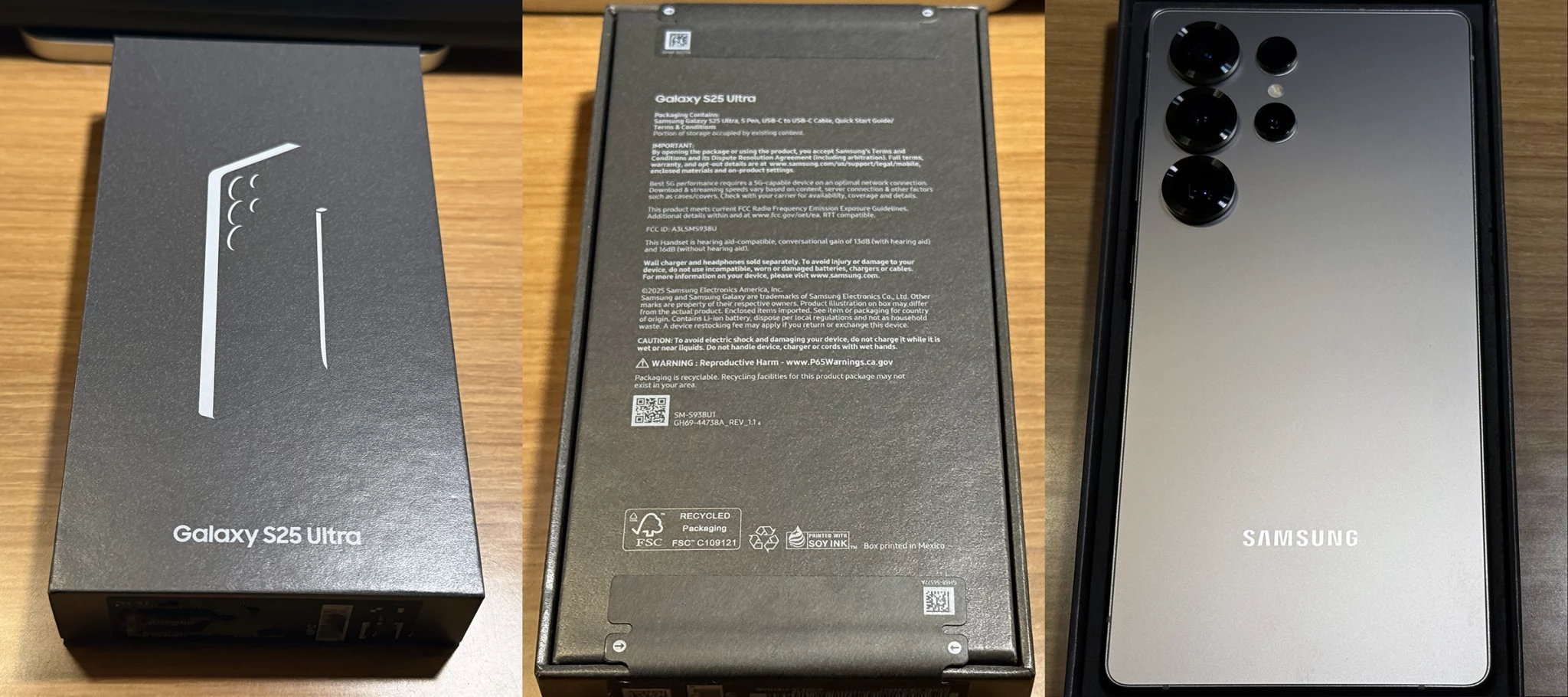via Bloomberg.
Samsung Mobile sort of reminds me of Microsoft and the whole Wintel ecosystem where as far as the PC makers were concerned, marketshare came at the expense of the absolute race to the bottom when it came to margins, and ultimately, profitability. Look at the PC market now. What happened to all the previous dominant players (Dell, HP, Gateway, Compaq, etc)?
Microsoft didn’t really care because they made money on every OEM license. It didn’t matter in the enterprise as well where they made a ton of money on volume licensing of their other key bread and butter franchise; Microsoft Office.
Apple on the other hand refused to play that game, and continued to make a decent profit on their Mac product line. The iPod along with iTunes, turned out to be a huge game changer for Apple due to the halo effect that occurred. This along with Apple’s retail presence, garnered a non-traditional customer base that attracted switchers to the Mac platform.
Then came the iPhone which really changed the game, and caught Microsoft completely off guard to where they ended up missing the entire mobile revolution (and have been having to play catch up ever since). Microsoft’s mistake was not taking the iPhone seriously from the get go and underestimating Apple’s design ethos. This is common in the tech sector where the notion of industrial design is lost on the top brass.
Look at how the PC makers responded to the original iMac launch. Those iMac’s were designed from the bottom up that way. The PC makers thought tacking on colored plastic on fairly generic boxes, was the exact same design process. And that kind of lack of industrial design, continued onwards until most of the companies had been decimated during the entire mobile revolution that occurred after the iPhone and iPad were released (to where IBM divested itself from that market, where mergers/consolidations occurred, to where Dell took itself private).
In 2010 (3 years after the launch of the iPhone) with Windows Phone 7, Microsoft was so sure they had an iPhone beater, they ended up conducting a mock funeral for the iPhone. Microsoft’s biggest mistake since 2007 though was paying too much attention to Apple, and not to Google’s Android platform.
Samsung Mobile has been making this exact same mistake. Instead of focusing on their Android competition, their focus has been mostly on Apple. Apple has been through this before on the desktop side and knows that it isn’t all about a laundry list of technical specs. iOS and iOS devices themselves aren’t perfect by any stretch of the imagination. But neither are Android devices. Android also has sizable market share because it’s used in many lower end devices built for the emerging markets in less developed countries (this is similar to how Windows marketshare was inflated due to the large deployment in the enterprise with low cost systems).
Likewise, China’s Xiaomi is doing an end round run on Samsung Mobile by eating up the low hanging fruit with affordable but also, decently designed products. Samsung is also seeing more competition on the higher end Android smartphone with a rejuvenated HTC, releasing well designed products like the One M8 or Sony’s (another major electronics company that lost its mojo) Xperia Z3.
True, the past several years, Samsung Mobile has been throwing out devices in every conceivable size and seeing what sticks, while also trying to get a leg up on Apple in terms of getting that first to market claim. All of this lacks focus and a lack of attention to design details in their products. And while focusing mainly on Apple, they are forgetting they are also competing in a tight Android market where brand loyalty, can be as fickle as it was in the PC market.
One of Samsung Mobile’s main advantage (larger device sizes) is now gone. They can play the same game PC makers did with Apple and the Mac platform (the whole better technical specs argument) but this seriously is NOT going to work in the smart phone market (except for a smaller niche of tech junkies). This demographic can play the sheeple card all they want to but the fact is that there are far more consumers out there who do not give a rats ass about technical specs and ideological differences.
Thus the astroturfing campaign against Apple also isn’t going to bear as much fruit as it did before when Apple refused to play in the 4+” screen size space. In the mean time though, other Android device makers are stepping up their design game (while Samsung Mobile takes its eyes off the wheel just like Microsoft did by focusing on the wrong competitor).
Samsung’s eroding marketshare isn’t mainly because of Apple; it’s because of other Android competitors (especially at the lower end with Xiaomi and now, on the higher premium end). Samsung Mobile can continue to have a captive customer base if they keep pandering to the Apple hater demographic. The problem though is that kind of marketing campaign, gets old after awhile. since it creates the same sort of annoying customer base that Apple also has (and that’s the irony, Android loyalists are just as bad as Apple loyalists when it comes to the obnoxious fervor/behavior). Finally, Samsung does not have a monopoly on Android because it isn’t something they directly control.
Often times, the media likes to portray the Google Android versus Apple iOS war as similar to what happened with Windows versus Mac when it comes to marketshare; that eventually, what happened with the Mac, will happen with iOS. WRONG. The problem they miss is that Apple this time around is operating from a position of strength with a huge ecosystem and developer support. iPhones and iPads are not niche products.
While the total Android marketshare (numbers cherry picked to also include lower end devices) continues to eclipse iOS, Apple continues chewing up the lions share of the profits. Each year, Apple sells more iPhone units and pulls in that much more profits. Apple’s yearly refreshes are iterative and refining (specs aren’t upgraded just for the sake of pleasing that crowd) while the company continues to operate as if it were a startup, with focus and discipline. This is completely unlike the 90’s where Apple’s internal hubris, went unchecked.
Thus for myself, I see it differently. Yes, history will sort of repeat itself but not with Apple taking the hit; what I see happening is the same sort of marginalization that eventually happened with the PC makers taking place with various Android device makers. The PC makers had no choice but to race to the bottom when it came to prices. And look where it got them today. Apple in the meantime focused on making higher margin products that they felt were better for their customers. And what about the former 800 pound gorilla Microsoft; 18,000 layoffs plus Steve Ballmer having to step down. Samsung Mobile is going to be Microsoft in this case.
So where does Google fit in all of this? Google does not make money from the Android operating system because like many of their other IP’s, allows its use for “free”. But as we all know, nothing is ever really free. Google of course makes money primarily from advertising. They utilize information datamined by peoples use of these “free” software and services in order to build a better profile as a means of creating targeted advertising for their real customers, the advertisers.
Android’s primary payload was all the Google services attached to it as a means to continue to drive that information as well as use of those services, on mobile devices. Unlike the desktop where Google has search locked up, they didn’t really like how either Windows mobile (which would push users primarily to Bing as the default) and Apple’s app centric iOS, could make Google services irrelevant in the mobile space. And that’s one of the primary reasons Google licensed it for free with some originally liberal terms; it was meant to gain marketshare as rapidly as possible as a means to garner the important developer support.
But that has also become a problem for Google. Other companies have been usurping the platform and forking it for their own needs (like Amazon and Xiaomi for example) where all the underlying Google services (and user facing apps) have been extricated. Google of course has been trying to reign in more control with later versions of Android but it’s already too late. The forked versions are their own respective platforms now.
Google’s biggest threat when it comes to mobile ad revenue is likely going to end up being Facebook. Facebook similarly builds user profiles but with far more ease because its user readily give up a lot of that information. And it’s all self-contained on Facebook’s social networking platform. Google tried to replicate that with Google+ but has had far less reach. Myself, I’m not a big user of such social networking platforms; but as a early Facebook investor, I’ve been using it as well as Google+. My main use of Google services before was Picasaweb Albums and the only reason I “upgraded” my profile to a Google+ one was to test it out.
Myself and a few friends ended up finding that Facebook is far more engaging. It makes sense since most of the presence is there (like your favorite music groups/celebs, various companies, most people that you know). Google instead has had to resort to various tactics to get user levels and engagement up including initially trying to force (and failing) to make a Google+ profile required for some of their older properties like Picasaweb. Many users of those services balked though (which is why Google Photos hasn’t yet supplanted Picasaweb; the interface is still there with the “no redirect” flag) because a lot of people (myself included), used Picasa for what it was, an easy to use web based photo gallery.
That of course hasn’t stopped Google from trying to continue to force Google+ down peoples throat. They did it with YouTube comments (which is mostly about trolling though) where its use now requires that one have a Google+ profile. This benefits Google+ because people are more than likely to create another Google account just for commenting (aka trolling) purposes; it artificially inflates the Google+ user base in the process (which is why I always take this number games when it comes to total users, ad impressions, page hits, Android marketshare, etc with a huge block of salt).
Then the big IF will be Microsoft’s mobile strategy under Satya Nadella. If their focus continues being Apple and not Android, it’s my belief they will remain a marginalized mobile player (as they will be making the same mistake again). If Microsoft focuses on Android (and it’s ongoing fragmentation) while also offering an attractive alternative for mobile device makers, I believe they can make up that lost ground. As mentioned, Android has been usurped; Microsoft needs to capitalize on that. Focusing on iOS (iPhone and iPad) first isn’t going to help them any because as of now, Windows (on mobile) is a niche. As the Bloomberg article noted, some Android users are going to make the switch to iOS (which has a rich ecosystem to go along with the exceptional build quality of the hardware). Disrupting Android enough and gaining converts will allow operating from a better position against Apple IMHO.



